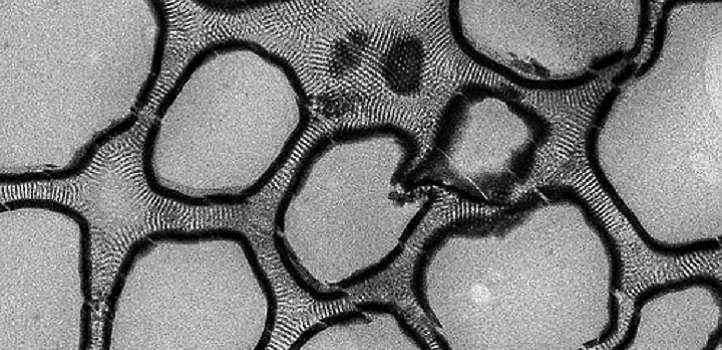May 17 2018
The symmetry of a diatom and the lattice of a honeycomb are some of the complex living structures that have shapes and patterns which have inspired researchers for a long time. One latest application is the development of artificial hierarchical porous materials that are not only stable but also have a large surface area and the potential to selectively extract materials. These materials have been challenging to develop at the nanoscale due to the pattern repeatability and complexity across scales from singular compartments to the structure as a whole.
 A transmission electron microscopy (TEM) image shows that the spherical compartments are interconnected through nanochannels. (Image credit: KAUST)
A transmission electron microscopy (TEM) image shows that the spherical compartments are interconnected through nanochannels. (Image credit: KAUST)
A research team from KAUST, headed by Suzana Nunes, has come up with an uncomplicated technique with the ability to produce, within five minutes, a flexible film that has a complex hierarchical structure with repeating patterns of regularly shaped, interconnected pores.
The researchers collaborated with experts from the Imaging and Characterization Core Lab and used the block copolymer known as polystyrene–b–poly (tertbutyl acrylate) (PS–b–PtBA) to demonstrate this technique. They tested different PS–b–PtBA concentrations with different solvent mixtures, where the resulting solution was cast on a glass plate and evaporated for disparate time periods to facilitate the nucleation and growth of cavities that had highly porous interconnecting walls. The resulting film was immersed in water to remove any solvent and to arrest the phase separation.
By using this method we create an important platform to design artificial porous materials which replicate a highly ordered porous and complex systems mimicking nature. These have potential use for separations and biological scaffolds.
Stefan Chisca, Lead Author